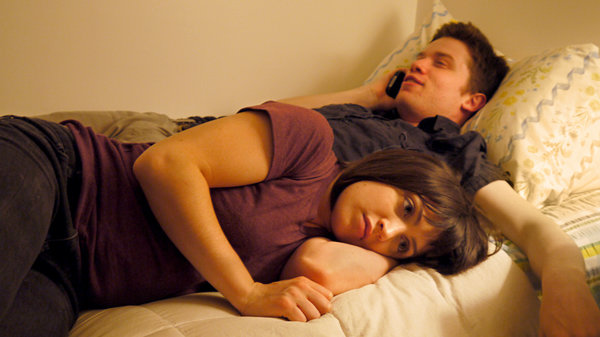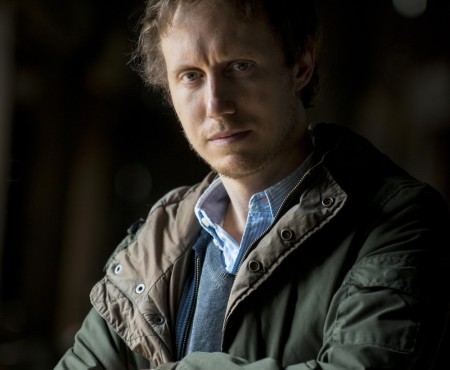The idea of perfection in the arts is often dismissed, either due to its perceived impossibility or that perfection would, once achieved, obviate the drive to evolve and keep improving. Speaking to the first of those points it is hard—personally—to imagine a film being more perfectly what it sets out to be than Dan Sallitt’s The Unspeakable Act, and to the second, it is a standard that any independent filmmaker should set as a goal. Its every last detail rings with clarity of purpose, a quiet empathy for human beings, and an intelligent and loving respect for cinema itself. It is, in short, a masterpiece.
Writer-director-editor Sallitt’s third feature, The Unspeakable Act tells the story of Jackie, a Brooklyn girl who is in love with her brother Matthew, and the consequences of her confronting these feelings. Sallitt forgoes any of the attendant melodrama in the premise, instead favoring a calm, matter-of-fact presentation that lends a beguiling, engrossing rhythm to the film.
Jackie is never judged, or treated as though there’s something terribly wrong with her. She has friends, who she likes and who like her. Her mother placidly lets her be, giving her as much space as she needs. And Matthew, who may not reciprocate the sexual aspect of Jackie’s love, is nonetheless quite aware that their relationship is not a normal one, not easily classifiable. His discomfort with the extent of Jackie’s attraction to him primarily derives, apparently, from the negative effect it would have on her. He is, brother or no brother, a worthy object of her love.
It’s a measure of the richness of The Unspeakable Act as a text that it can be read on multiple levels of literal truth. It can, if one pleases, work literally as the story of a girl with incestuous feelings for her brother, or as emerges in her therapy sessions, that her attraction to her brother may merely be a reflection of her love for familiarity (see also the lovely Flatbush house in which most of the film is set, where Jackie has lived her whole life), or even a means by which to cling to childhood. Any or all of these levels work equally well, with equal richness.
Sallitt closes the film with a dedication to the late French auteur Eric Rohmer, who like Sallitt began as a film critic before taking to directing. There is an attention to detail in both directors’ work that indicates a critic’s approach, and if anything The Unspeakable Act does so more clearly than any of Rohmer’s work. Sallitt lays out his signifiers unobtrusively but unmistakably, giving the same camera placement in the foyer of the family’s house multiple meanings depending on lighting.
Jackie’s placement in the frame indicates the progress of her therapy as much as Tallie Medel’s (excellent) performance in the role or even the text. Let none of this, by any means, be read as an indication that The Unspeakable Act is somehow dry or academic, a feast for critics alone. Every frame of it pulses with humanity, with a sense of place, with warmth and light.
The understated, matter-of-fact presentation is a key in achieving this state. The actors limit extraneous gestures or displays of emotion, making each all the more noticeable in its scarcity. Tallie Medel is particularly good as Jackie, pulling off the tremendously difficult task of sulking compellingly; there’s far more to her performance, which is a mastery of various kinds of quiet and stillness, laced with obsessive fixation. As Matthew, Sky Hirschkron meets her energy in exactly the manner befitting an extremely close sibling, with even more stillness and control, in the manner befitting the sibling in more control of his life.
Their dynamic is perfect (to return to that usually problematic, but here apt, descriptor). There are no slouches in the entire cast; though the acting in The Unspeakable Act is of a more stylized variety than one associates with the exhibitionist naturalism of much independent cinema, here it ends up being, while not “real,” true.
This is why The Unspeakable Act is perfect. It is not a film concerned with impressing anyone, with being cool, or with calling a lot of attention to itself. It is merely concerned with telling the truth. If a conveniently reductive reading of John Keats may be permitted, truth is beauty. And what is art if not the study of beauty? Dan Sallitt has made a beautiful film, that is true, and that, yes, is perfect.



















